Mineral water, often hailed as one of the purest forms of hydration, has seen a remarkable surge in popularity within health and wellness circles around the globe. Unlike ordinary water, mineral water originates from geologically and physically protected underground sources, naturally enriched with minerals like calcium, magnesium, and potassium. This unique composition not only contributes to its distinct taste but also offers a myriad of health benefits, making it a preferred choice for those seeking to enhance their hydration practices. The increasing awareness about the importance of hydration and the quality of water consumed has led individuals to explore various options, with mineral water standing out as a superior alternative.
What is Mineral Water?
Mineral water is a type of water that comes from a mineral spring and contains various minerals, such as salts and sulfur compounds. It is obtained from naturally occurring springs and wells, from where it is harvested directly without undergoing chemical processing or addition of artificial minerals. The defining feature of mineral water is its consistent level and specific proportion of trace minerals that it derives from its natural source. These natural mineral sources are often found in mountainous regions or areas with a significant geological history, where water can percolate through layers of minerals and rocks to acquire its unique mineral content.
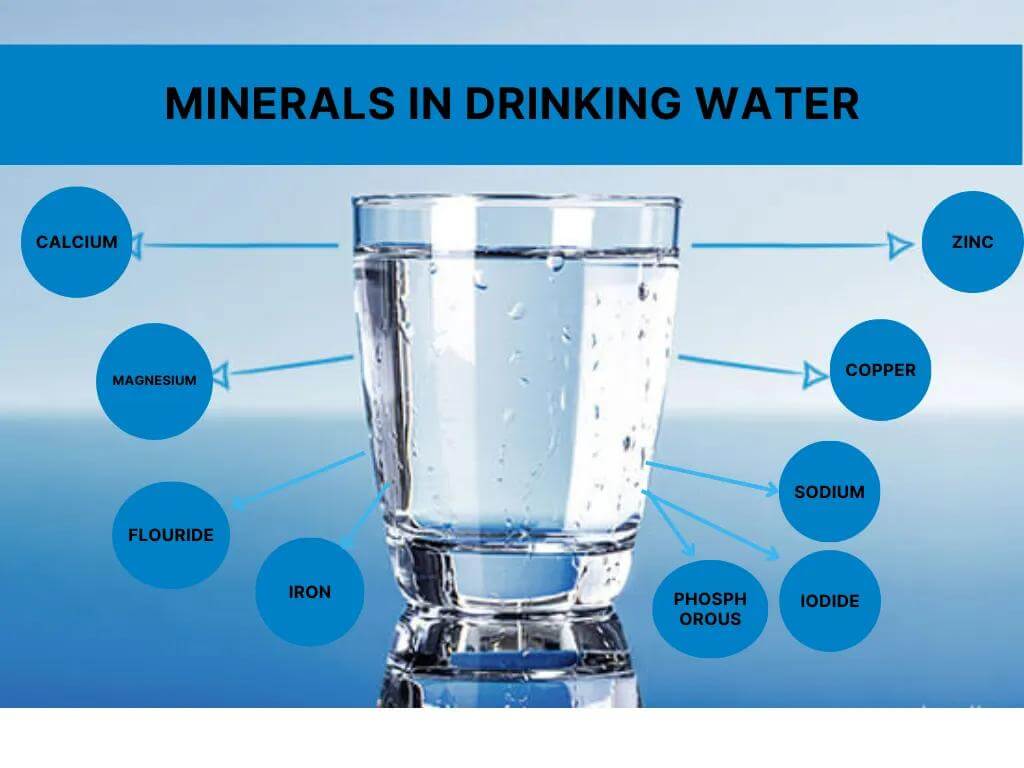
The characteristics of mineral water vary depending on its source, with each type boasting a unique mineral composition that can include elements like calcium, magnesium, potassium, sodium, bicarbonates, iron, and zinc. These minerals are known for their health benefits, contributing to the nutritional value of the water. Due to its natural filtration process, mineral water is often considered purer and of higher quality than tap water, which might contain added chemicals or undergo extensive processing.
Types of Mineral Water
Mineral water can be categorized based on its origin, carbonation level, and mineral content. Here are the primary types:
- Still Mineral Water: This type lacks added carbonation, offering a smooth taste. It’s ideal for daily hydration and cooking.
- Sparkling Mineral Water: Infused with carbon dioxide gas under pressure, it has a bubbly texture. Perfect for a refreshing, festive beverage.
- Sulfate Mineral Water: High in sulfate minerals, it’s often recommended for digestive health.
- Calcium-Rich Mineral Water: Ideal for bone health, this water has high levels of calcium.
- Magnesium-Rich Mineral Water: Known for supporting muscle function and overall health, this water is high in magnesium.
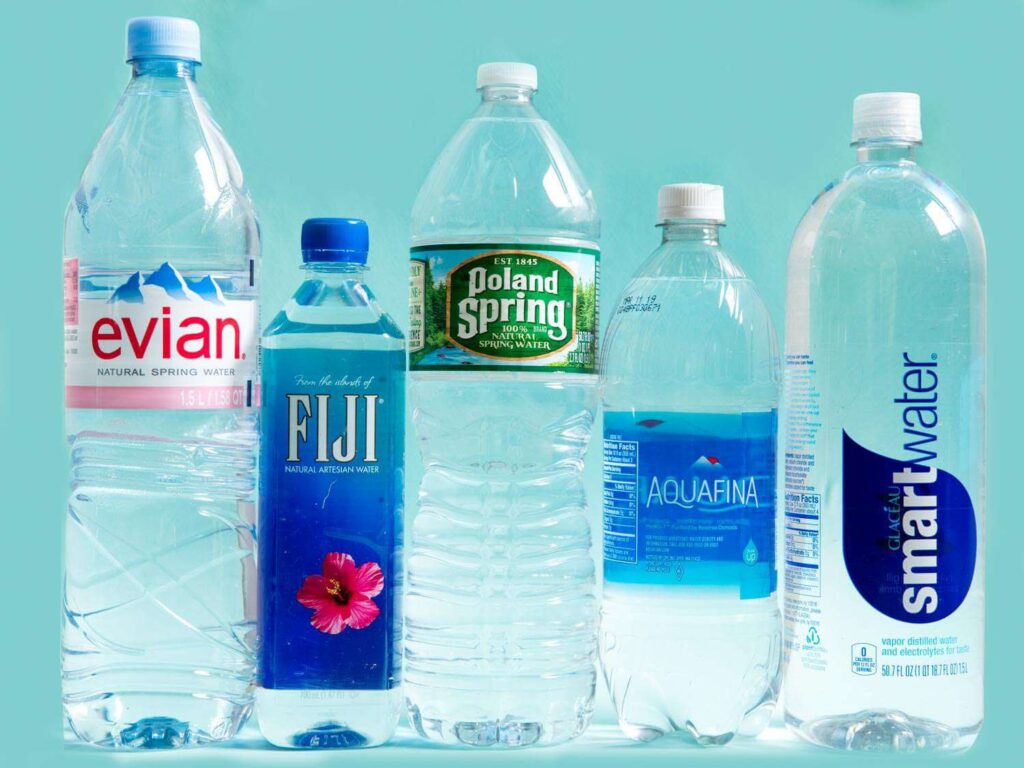
Mineral Water Benefits
1. Provides vital minerals
Mineral water contains calcium, magnesium, potassium, sodium & other minerals that play vital roles in the body. These minerals support bone health, heart function, metabolism, nerve transmission etc.
2. Improves hydration
The mineral content in mineral water helps the body absorb water more efficiently compared to regular water. This leads to better hydration.
3. Detoxifies the body
Trace minerals help flush out toxins and cleanse the body gently. Mineral water is a mild diuretic.
4. Boosts digestion
Minerals like sodium and magnesium in mineral water aid digestion and relieve constipation. The carbonation in sparkling waters improves digestion too.
5. Strengthens immune system
Minerals like zinc, selenium & copper are present in mineral water. These act as antioxidants and improve immune defense against diseases.
6. Healthy skin
Trace elements like silicon, sulfur and fluoride are found in mineral water. It helps synthesize collagen leading to improved skin elasticity and complexion.
7. Low in contaminants
Mineral water’s natural purity means it is free of bacteria, pesticides and other harmful impurities.
8. Better taste
The mineral content gives mineral water a good taste and makes you drink more water.
9. Strengthen bones
It is rich in calcium, the vital mineral required for developing strong bones and teeth. Rewrite the above contents, use other writing expression.
Health Effects of Mineral Water
Mineral water is celebrated for its myriad health benefits, largely attributed to its rich mineral content. Among the positive health effects, mineral water enhances hydration, supports bone health due to its calcium content, and aids in the regulation of body functions with minerals like magnesium and potassium. These essential nutrients contribute to cardiovascular health, improve digestive processes, and can even regulate blood pressure levels, showcasing the comprehensive benefits of incorporating mineral water into one’s diet.
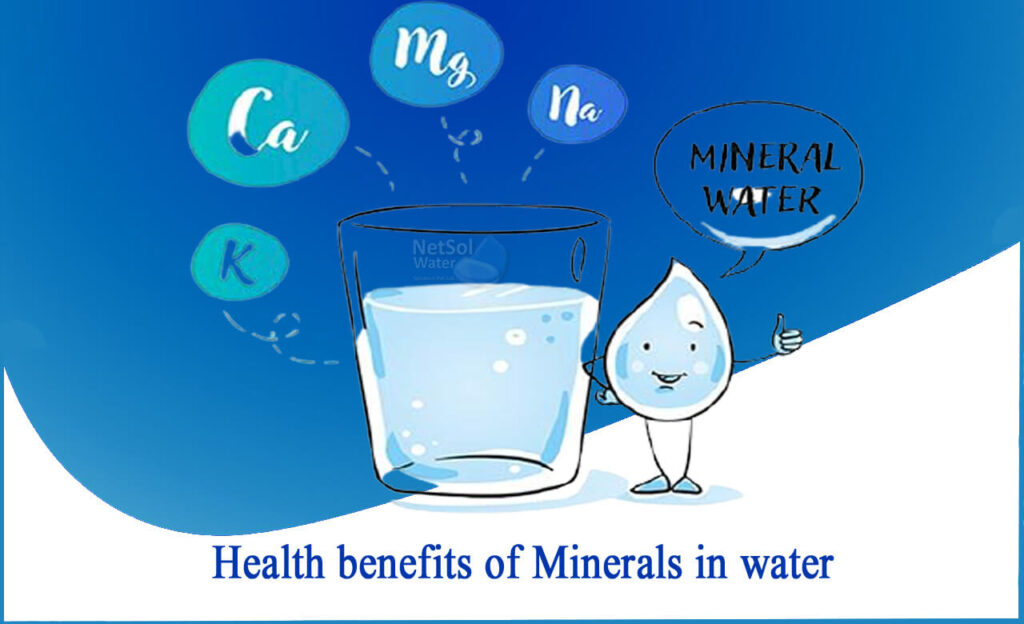
However, it’s important to consider potential negative effects, although they are relatively rare and often linked to excessive consumption or specific health conditions. For individuals with certain kidney conditions, the high mineral content, especially sodium and potassium, could pose challenges in regulating mineral balance. Furthermore, sparkling mineral water, due to its acidity from carbonation, might contribute to dental erosion if consumed in large amounts without proper dental care.
Overall, the health effects of mineral water are predominantly positive, offering a natural source of essential minerals that can complement a healthy lifestyle. Nonetheless, moderation and consideration of individual health circumstances are advisable to fully benefit from its consumption.
Mineral Water vs. Tap Water
- Source:
- Mineral Water: Comes from protected underground sources that naturally contain minerals.
- Tap Water: Sourced from surface or underground sources and treated to meet drinking standards.
- Mineral Content:
- Mineral Water: High mineral content, including calcium, magnesium, and potassium, which are naturally occurring.
- Tap Water: Variable mineral content; may have minerals added during treatment, but generally lower than mineral water.
- Health Benefits:
- Mineral Water: Offers health benefits such as improved hydration, bone health, and digestion due to its rich mineral profile.
- Tap Water: Provides essential hydration; health benefits depend on the mineral additives and water quality.
- Purity:
- Mineral Water: Typically has higher purity levels due to the natural filtration processes and protected sources.
- Tap Water: Quality and purity can vary depending on local treatment processes and infrastructure.
- Taste:
- Mineral Water: Taste is often distinctive and can vary based on the mineral content.
- Tap Water: Taste can vary widely depending on treatment and the presence of chlorine and other disinfectants.
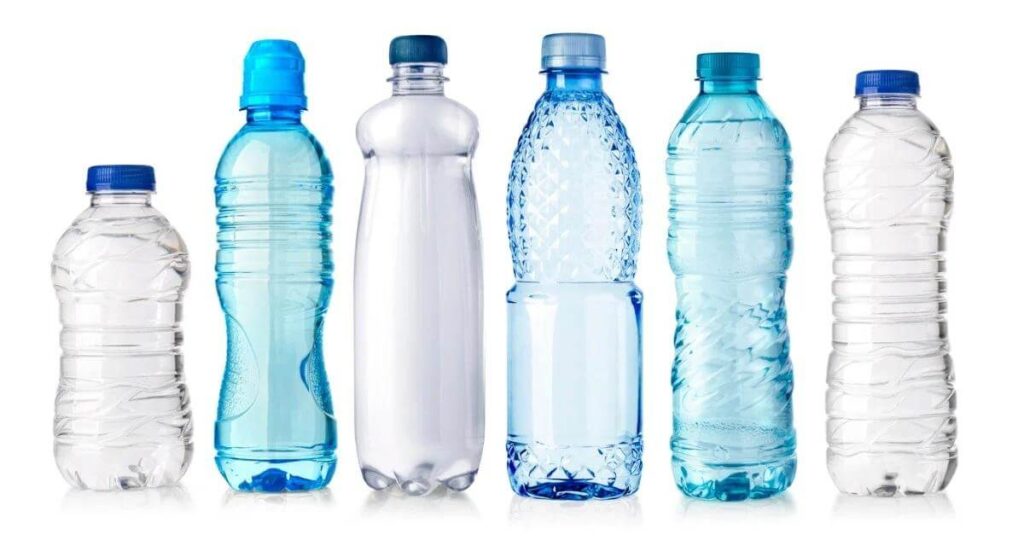
Mineral Water vs. Spring Water
| Feature | Mineral Water | Spring Water |
|---|---|---|
| Source | Comes from underground sources that are rich in minerals. | Originates from underground springs, may or may not contain significant minerals. |
| Mineral Content | Has a consistent and significant mineral content that adds to its taste and health benefits. | Mineral content varies and is usually lower than mineral water. |
| Treatment | Bottled at the source; undergoes minimal treatment to preserve mineral content. | May be treated to meet safety standards, which does not significantly alter mineral content. |
| Taste | The taste is often distinct due to its mineral content. | Taste can vary widely but is often more neutral than mineral water. |
| Regulations | Strictly regulated to ensure it maintains its natural mineral content. | Must meet the standards of potable water, but less focus on preserving mineral content. |
Mineral Water Filtration: RO vs. Mineral Water
| Aspect | Reverse Osmosis (RO) Water | Natural Mineral Water |
|---|---|---|
| Purification Process | Uses a semipermeable membrane to remove impurities, bacteria, viruses, and most minerals. | Bottled directly from natural springs or wells, retaining its natural mineral content. |
| Mineral Content | Lacks minerals due to the RO process, resulting in demineralized water. | Rich in essential minerals like calcium, magnesium, and potassium, beneficial for health. |
| Health Implications | Provides pure water, which is free from contaminants but may require additional mineral intake elsewhere. | Supports bone health, improves hydration, and enhances metabolic function due to its mineral content. |
| Best For | Individuals in areas with heavily contaminated water sources or those seeking very pure water without concern for mineral intake. | Those looking to naturally enhance their mineral intake through water, and who value the taste and nutritional benefits of naturally occurring minerals. |
| Considerations | Might need to supplement diet with minerals lost in the RO process. | Natural mineral content can vary; it’s important to choose a brand with a beneficial mineral profile. |
The Effect of Boiling on Mineral Water
Boiling mineral water is a common practice for those looking to purify their water further, but concerns arise about its impact on the water’s mineral content. The process of boiling does not remove minerals; instead, it can concentrate them. As water boils and evaporates, the minerals dissolved in the water do not evaporate with it. Consequently, the mineral concentration can increase in the remaining water. However, this change in concentration is generally minimal and does not significantly alter the health benefits associated with the minerals in mineral water. Therefore, boiling mineral water might affect its taste and temperature, but it largely preserves the essential minerals like calcium, magnesium, and potassium, ensuring that the water remains beneficial for hydration and health.

Daily Consumption of Mineral Water
Incorporating mineral water into your daily hydration routine is a healthful practice that can enhance your overall well-being. Drinking mineral water daily provides a natural source of essential minerals like calcium, magnesium, and potassium, which are crucial for various bodily functions including bone health, muscle function, and nerve transmission. It’s recommended to consume mineral water as part of your regular water intake, ensuring you meet the daily hydration recommendations of about 2 liters for women and 2.5 liters for men. However, it’s important to choose high-quality mineral water from reputable sources to maximize health benefits. Balancing mineral water intake with other water sources can help maintain a well-rounded mineral intake without overconsumption.
Final Thought
In conclusion, mineral water offers a wealth of benefits, making it an excellent choice for those looking to enhance their hydration and overall health. With its rich content of essential minerals like calcium, magnesium, and potassium, mineral water supports bone health, aids in muscle function, and promotes efficient nerve transmission. The advantages extend to improved digestion, better skin health, and a strengthened immune system, thanks to the natural purity and mineral composition of this water.
However, when opting for mineral water, it’s crucial to consider the source and quality to ensure you’re receiving the maximum health benefits without any unwanted contaminants. While mineral water can be a valuable addition to your daily hydration routine, balancing its intake with other water sources is advisable to maintain a well-rounded diet and prevent excessive mineral consumption.
As you make choices about your water consumption, consider the unique benefits that mineral water can offer. Let your health needs and personal preferences guide you in making an informed decision. Embracing mineral water as part of your daily routine can be a simple yet impactful step towards better health and wellness.
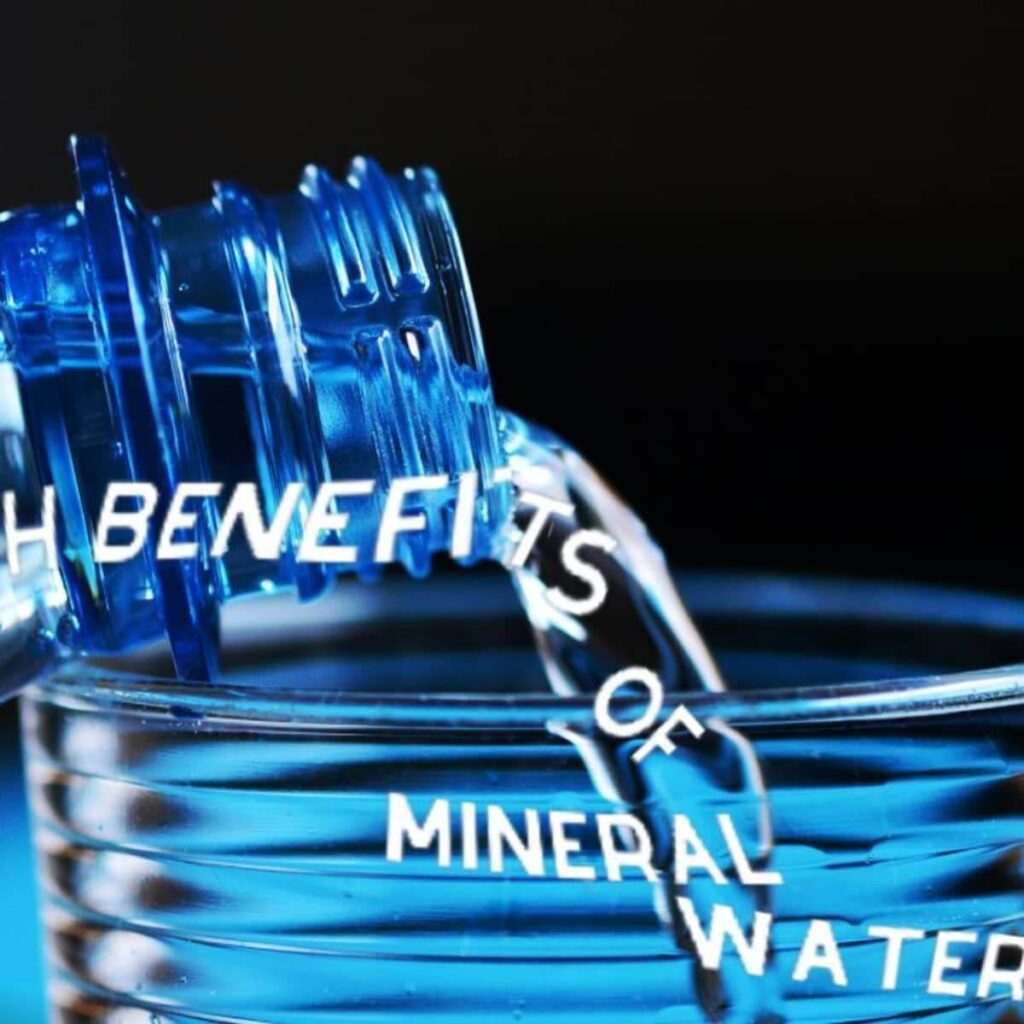
FAQ
1. What is Mineral Water?
Mineral water is water that comes from a mineral spring and contains various minerals like calcium, magnesium, and potassium. It is naturally endowed with these minerals, which contribute to its health benefits and distinct taste.
2. What is the Difference Between Drinking Water and Mineral Water?
The primary difference between drinking water (typically tap or purified water) and mineral water is the mineral content. Drinking water may have minerals but not at consistent levels, and it often undergoes treatment to remove impurities. Mineral water, on the other hand, retains its natural minerals and is bottled directly from the source.
3. What is the Disadvantage of Mineral Water?
A potential disadvantage of mineral water is its cost, as it can be more expensive than tap water. Additionally, excessive consumption of certain minerals (like sodium) found in some mineral waters might not be suitable for individuals with specific health conditions.
4. Is Mineral Water Good for Kidneys?
Yes, mineral water is generally good for kidneys as it helps in hydration and can assist in flushing out toxins. However, those with kidney issues should be mindful of mineral content, particularly sodium and potassium levels, and choose their mineral water accordingly.
5. Is Tap Water A Mineral Water?
No, tap water is not considered mineral water. While tap water can contain minerals, it does not have the consistent high mineral content of natural mineral water and often undergoes treatment processes that can alter its mineral profile.
6. Does Boiling Water Remove Minerals?
Boiling water does not remove minerals; it can concentrate them. As water boils and some of it evaporates, the concentration of minerals in the remaining water increases.
7. Which is Better RO or Mineral Water?
Whether RO (reverse osmosis) water or mineral water is better depends on personal health goals and preferences. RO water is highly purified and free from almost all contaminants and minerals, making it a good choice for those seeking purity. Mineral water provides beneficial minerals and is preferred by those looking for natural hydration options. For overall health and mineral intake, mineral water might be considered superior, but RO water is best for those concerned about contaminants.
